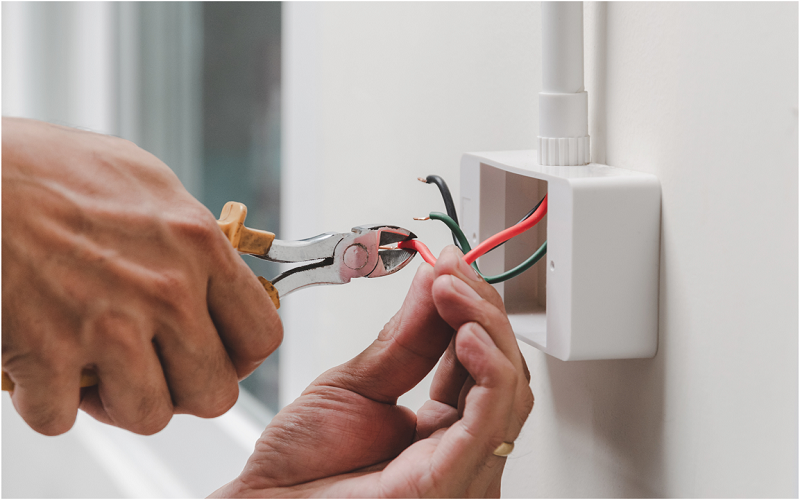
Commercial electrical engineersare at the forefront of various commercial industries, including commercial buildings, industrial complexes, and other commercial facilities, to ensure electrical infrastructures function correctly. They perform an array of jobs that include installing electrical systems, taking care of maintenance of these systems, identifying the faults from the electric circuits, and making the necessary repairs.
Let’s lookat the intricate roles and responsibilities of a commercial electricianBristol:
Installation of Electrical Systems: Installation of electrical systems is one of the primary roles of commercial electrical engineers, either upon the construction of new buildings or while renovations are ongoing in existing ones. This encompasses close collaboration with architects, designers, and construction crews to devise electric diagrams that well suit different commercial properties according to predetermined needs. A commercial electrician Bristol should be able to read an apparatus’s drawings, know the codes and laws, and choose suitable materials to be installed.
Maintenance and Upkeep: Electrical systems, not limited to installation, also require ongoing maintenance and upkeep, the job responsibility of an industrial electrician. Carrying out frequent checks, tests, and preventive maintenance helps locate the causes of minor problems and prevents them from becoming serious. This helps reduce the risk of any emergency breaking up during the expedition. The reagency of such activities also amounts to the safety and reliability of these electric systems and incurs far less during repairs.
Troubleshooting and Repairs: A commercial electrician Bath is the name given by professionals when electrical systems do not work well or in their normal fashion; in such situations, electrical faults will be corrected after the issue has been identified. Such a task requires conversing with electricity fundamentals, components, and systems and utilizing specialized tools, including sensors for fault detection and corrective measures. The electricians have to deal with the discussed defects, whether a bad circuit, damaged switchgear, or a power outage. They have to repair the problem and implement the solution as fast as possible to avoid further complications.
Upgrading and Retrofitting: Due to the progression of technology and energy efficiency being a major issue now, commercial electricians will have the task of upgrading the functions of old electrical systems to new ones as stipulated. This could include removing incandescent lighting and integrating energy-saving lighting systems in older buildings, installing a renewable energy system such as solar panels, or upgrading the electrical panels’ lighting capacity to accommodate increased power requirements. Through consistent adherence to the latest technical developments and market trends, both manual and automated electricians play a vital role in reducing energy consumption levels, increasing economic performance, and decreasing the environmental impact of businesses.
Ensuring Compliance and Safety: Certification goes hand in hand with electrical codes, requirements, and safety standards in commercial areas to prevent accidents, injuries, and property damage all at once. One of the key points for commercial electricians is to provide the guarantee that all the electrical work fits into the laws and, importantly, provides no potential risks to safety. Some of the tasks that electrical inspectors do include licensing, inspecting electrical installations, working according to standards in the industry, and ensuring safety measures are followed to protect employees and occupants from any electrical hazards.
Collaboration and Communication: The role of a commercial electrician architecting the process is communication, and teamwork comes into play. They commonly partner with other trade personnel, including plumbers, HVAC technicians, and carpenters, to collaborate on electrical installations, which, in turn,are aided by supervising the overall installation process on construction projects. Another key element is having a clear communication set up between clients, project managers, and the other stakeholders so that the electrical work will not disrupt the project schedules and will be within the project budget and expectations.
Final Thoughts
An electrician specializing in commercial projects, thus, holds together an extensive and wide scope of tasks inside the job, including installations, maintenance, troubleshooting, upgrades, compliance, and collaboration. These two professional groups’ competence and special skills are unmatchable in the commercial environment’s electrical supply field. Thus, by maintaining timely information, adaptability, and work perseverance, commercial electricians also play a primary role in supporting the operation and achievement of businesses and factories.



